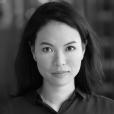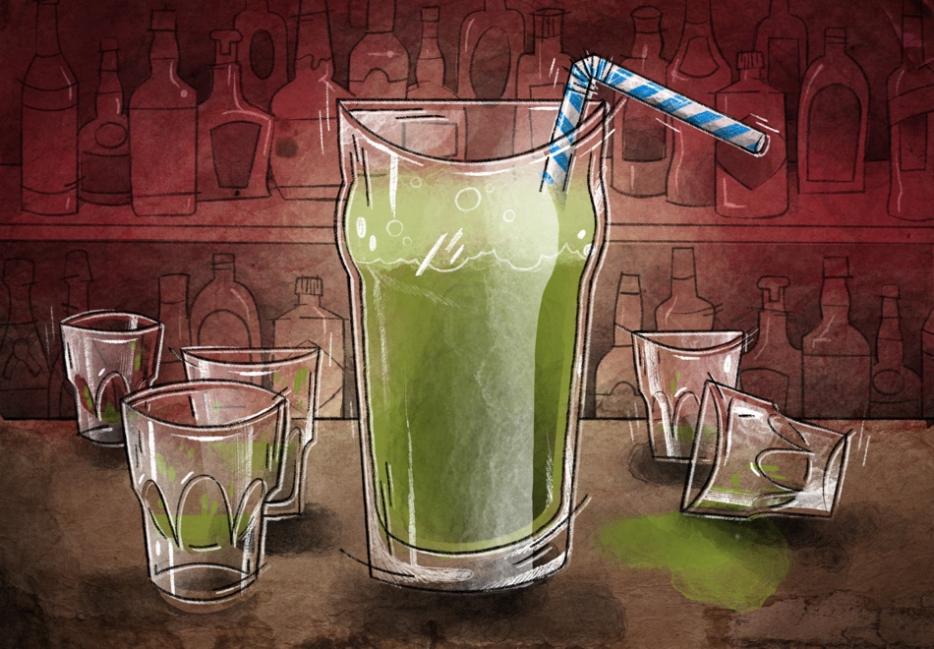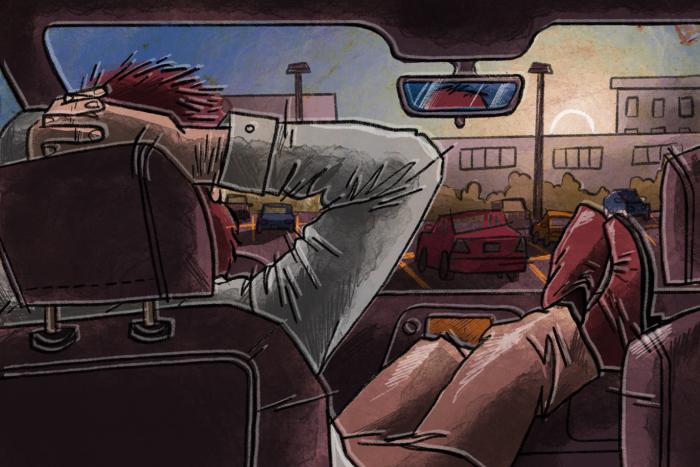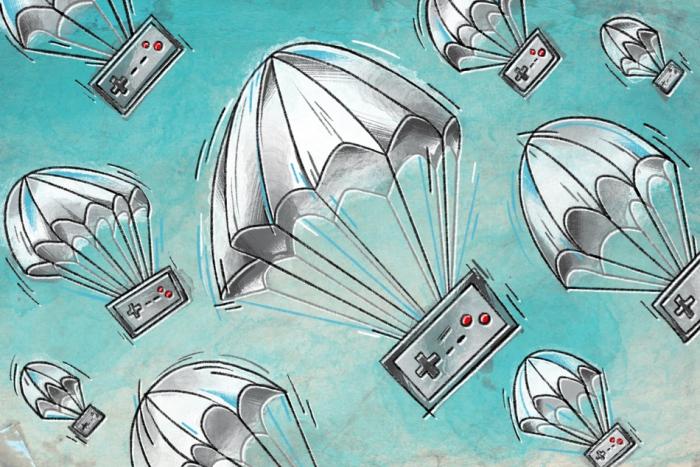What were we obsessed with, invested in and plagued by in 2019? Hazlitt's writers reflect on the issues, big and small.
We are living out the worst timeline and in this iteration of the universe, I have become a full-blown Vancouver wellness basic bitch. I quit Diet Coke and I've only had three alcoholic beverages this year. My current drink of choice is green juice. I do Pilates. To prevent foot cramps and alleviate tension in my jaw, I take a lemon raspberry flavoured magnesium supplement called Natural Calm. (So tranquil!) Wherever I go, I carry a stainless steel bottle as if the zombie apocalypse has hit and I need to guard my water source with my life. When I can't sleep, I lay on an acupressure mat and listen to true crime podcasts. I have seen every single vegan propaganda documentary available on Netflix, though this does not stop me from eating the occasional Totoro gingerbread at Liberty Bakery.
This past July, I had to confess my wellness basic bitch shame to my friend Liz who was about to visit me from New York at my writing residency at Historic Joy Kogawa House. Liz knew me when I could drink five bourbons in a night and still make it the next morning to my job in children's publishing, where I would sit in my cubicle and eat processed fortified cereal in an attempt to absorb enough vitamins and minerals to offset all the alcohol coursing through my veins. This was before I read Michael Pollan's New York Times Magazine essay "Unhappy Meals" and realized all the scientifically engineered food I'd grown up believing to be oh-so-healthy was not as nutritious as eating copious amounts of fruits and vegetables.
"Can it be true that we haven't hung out since Breaking Bad was still on the air?" Liz wrote to me in an email. (I did a fact check—we last saw each other one year after the finale of the TV show, when I was on book tour.) Then she recalled the time I'd tried to walk out of a bar in Brooklyn with a glass of whiskey in my purse because I could not finish it right then but I did not want to waste it. What can I say? I'm Chinese. We thrive on thrift. The bouncer was not pleased, but Liz found this turn of events very amusing. "You are such a legendary badass!" she wrote.
I was about to disabuse Liz of my legendary badass status. After a prolonged bout of illness in 2015, I had succumbed to performing late-stage capitalist wellness routines to maintain my health. If I were to record what I eat each day, it would read like a budget version of the infamous Amanda Chantal Bacon food diary for Elle. (I own the Moon Juice cookbook. The recipes are delicious, unlike some vegetarian broccoli-forward offerings that taste like corporal punishment and smell like farts.) When it is warm out, my days start with smoothies that have no fruit and a fuckton of organic kale, raw cacao powder, soaked flaxseeds, almond milk, frozen avocado, and moringa powder. I discovered that two parts cacao to one part maca with a dash of vanilla tastes like a Wendy's frosted malt. I avoid refined sugar when possible, sweetening beverages instead with the plant extract stevia. Before I developed allergies to a long list of foods, I didn't care how much refined sugar I ingested. Now I carry a bottle of alternative sweetener in my bag, swag.
How and why had I entered wellness basic bitchdom? This past January, I had endured an entire year without my father, who died on December 26, 2017, less than a month after he received a diagnosis of stage four cancer. On my dad's last day, I was lying in bed even though it was nearing two in the afternoon, wearing sushi-patterned pajamas, when I heard my mom screaming. I ran downstairs to the study, saw that Dad was convulsing, pulled my mouthguard out, slapped it on the desk (a true emergency—I'm a germaphobe and I would never put something that goes in my mouth on an unsanitized surface), and called 9-1-1. The dispatcher asked if I knew CPR. I'd taken first aid at work so I began the compressions, following the dispatcher's count. Time seemed to move so slowly as I pressed as hard as I could, but not so hard that I would break ribs. I was so certain that my dad was going to live and broken bones would really suck on top of having cancer, so I was careful. My arms were getting tired, but the overachiever in me was going to get this right. The dispatcher told me to keep going, the first responders were almost there, and I pushed through my exhaustion knowing that I was keeping my dad alive. I had a purpose. Nothing I had ever done in my life before this moment was important. I hadn't gone to med school—I'd only worked as an admissions clerk at the Faculty of Medicine at UBC right after I graduated from an MFA program—but maybe, even without fancy credentials, I could save a life.
To my relief, a group of firemen showed up and took over CPR before I developed rhabdomyolysis from over-exertion. My brother arrived. At some point I changed, and my mom handed me an apple, so I was eating as I spoke to the paramedics. (My friend Lisa assured me later that first responders have seen it all and it isn't sociopathic to stop and eat during an emergency.) Before they gave my dad drugs to sedate him for the ambulance ride, they let me have a moment to tell him that I loved him and we were going to the hospital and my brother would accompany him. After this point, nothing I did made very much sense. I packed a bag, thinking we'd be staying overnight, but all I took was cashew nuts, a bottle of water, an iPad, and giant block of black tourmaline instead of toiletries or a change of clothing. Then, because I wanted air, I decided to walk to the hospital. I realize now my dad could have died in this fifteen-minute span, but lucky for me, when I arrived the ER doctor was working to stabilize him. We waited. I drank water. I did not put that fist-sized chunk of black tourmaline to use. A few hours later, the doctor informed us of my dad's options and we decided to end his suffering and let him go.
What I had not learned during the first aid course, where we practiced on a mannequin known as "Rescue Annie," is that performing CPR on a dying loved one can be a traumatizing experience. This took a few days to register because I am the kind of person who is calm to the point of reptilian in an emergency (you want me on your apocalypse team during the first seventy-two hours—my will to survive is so strong that I once hiked eight hours with chicken pox while carrying a thirty-pound backpack before my parents drove 164 kilometres to bring me home). Then I crashed, binge-watched episodes of a satirical show about the British royal family called The Windsors—even though everyone was telling me to watch The Crown—and wondered how the Queen and Prince Philip were still alive.
Last year in January, when I managed to get out of bed and return to my life, I was determined to be an expert on how to grieve. I was going to fuck grief up so hard. I went on a tour of all my friends who had beloved dead dads, read The End of Eve by Ariel Gore and Wave by Sonali Deraniyagala while listening to Mount Eerie's album A Crow Looked at Me on repeat. For the first time since graduate school, I was writing poetry; I needed a place to put my emotions and to understand grief. By June of that year, I gathered friends to work at a soup kitchen organized by Enspire Foundation as a memorial for my dad. There was a pain in my left shoulder whenever I felt sad. My right ankle hurt on long walks. I went to see my dentist, massage therapist, naturopath, osteopath. What I couldn't do for my mind, I was determined to do for my body—though I would have to remind myself the two were not separate. What I most wanted was to let go of all the suffering, to figure out how to live without my excellent father.
At the beginning of this year, the grief was ebbing. I had come to the understanding that I did not have to define myself by sadness. I was not my emotions. I was certainly not grief's bitch. All I needed was to choose a path, any path, and do small things that would add up to one big thing: life. But then in February, my mom received a diagnosis: stage three cancer. From there, the year became a blur of activity. I accompanied my mom to day surgery thirty-six hours before I gave a talk called "Healing is a Political Act," during which I discussed how one way to heal is to tell stories, to take control of our own narratives.
During Mom's chemo sessions, I read books for the Amazon First Novel Award (I was on the jury) and prepared for a writing residency at the University of British Columbia. One day, Mom mentioned in passing I should write about her life, but I said, "You can write about your own life." She was hurt by this response. What I meant was, "You are going to live." But did I really know that? No one, not even her doctors, could make such a pronouncement, but I needed to believe.
Around this time, my naturopath recommended Gabor Maté's When the Body Says No. At the beginning of the book, Maté writes: "This is not a book of prescriptions, but I do hope it will serve its readers as a catalyst for personal transformation. Prescriptions come from the outside, transformation occurs within. There are many books of simple prescription of one sort of another—physical, emotional, spiritual—that appear each year. It was not my intention to write yet one more. Prescriptions assume that something needs to be fixed; transformation brings forth the healing—the coming to integrity, to wholeness—of what is already there. While advice and prescriptions may be useful, even more valuable to us is insight into ourselves and the workings of our minds and bodies. Insight, when inspired by the quest for truth, can promote transformation." I wanted to come to wholeness, to transform, but this seemed just out of my grasp. After I read When the Body Says No, I did some research into Somatic Experiencing. I went to see a therapist who instructed me to lay on the ground and thrash out my trauma. The entire process seemed strange and almost comical, but it worked. I had less pain.
Spring wore on. My mom had two additional day surgeries. Then, to our surprise, the doctors cleared her to have major surgery a month earlier than expected. Her surgeon called me as soon as she was out of the theatre; he was very pleased with the results. The nursing staff said she was the most cheerful patient they had seen recover from her particular surgery. She was doing stairs at the hospital and demanding solid food, so they discharged her in under a week. At home, she had complications, during which time her pain made it seem like she was suffering from demonic possession. I swear, it was like The Exorcist. She kept telling me it felt like there was a knife in her back, that maybe the epidural had hit a nerve. I ran up and down the stairs of the house, fulfilling her many demands. I wondered if this was how the rest of our lives was going to play out, suffering and caretaking. When she was no longer able to get out of bed, we admitted her back to the hospital for more tests and interventions. For six weeks, I was unable to sleep well or work due to distress; finally, in August, I began to prepare to teach a graduate fiction class at UBC and edit a friend's novel. Liz came to visit, during which time I had one Old Fashioned before swearing off drinking once again.
On a bright Friday in November, before a session with my writing group, I went with Mom to the Cancer Centre. We thought she still had six rounds of chemo to complete, but during this appointment one of her doctors said the word I had been waiting for: remission. Perhaps we weren't on the worst timeline after all. At that moment, some other Doretta in the multiverse had probably gotten horrible news and was stress-eating a bag of Doritos from a vending machine, but not me: I was already planning on having a celebratory almond matcha latte sweetened with stevia. Mom was puzzled though, unsure whether this was a moment for celebration. What happens when a months-long near-death experience comes to an end? There should be a ticker tape parade that lasts hours, but it just feels like a return to regular life. After the appointment, we got off on the wrong floor of the parking structure, something we'd done several times before. We may have even discussed what vacuum cleaner she should buy. We were embracing the mundane like champions. As we drove from darkness into sunlight, I understood for the first time that choosing to heal, to take the time to do a hundred little tasks along the path to embracing wholeness, is another way to become a legendary badass.






